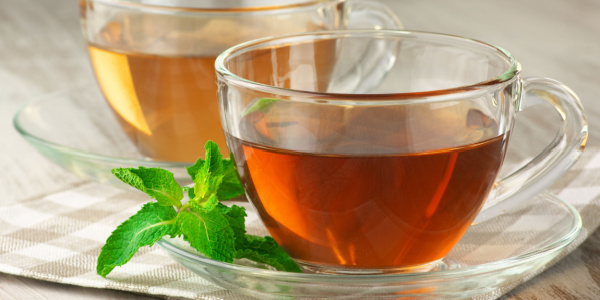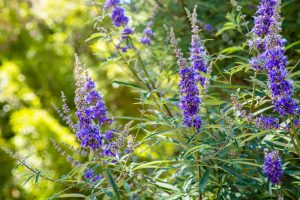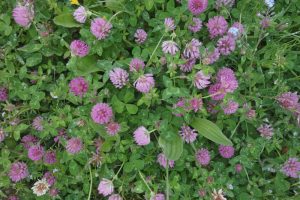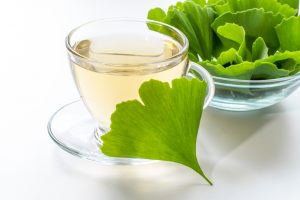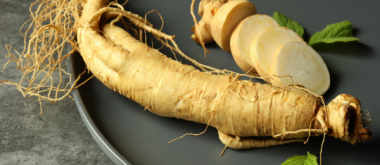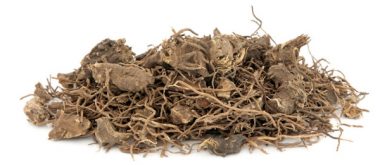Menopause is a time of change that is often accompanied by undesirable side effects. Many women suffer from symptoms such as hot flashes, sleep problems, mood swings and lack of energy. Fortunately, there are a number of plants that have a positive effect on numerous menopausal symptoms and can be enjoyed in the form of a soothing tea during the cold season.
Ginseng
The perennial plant from Asia has fleshy roots that contain important compounds such as ginsenosides and gintonin. Ginseng has been used as a natural home remedy for a variety of ailments for centuries. The plant has also been shown to be extremely effective in menopausal symptoms as its ingredients stimulate the body’s estrogen receptors. These help relieve stress and anxiety, increase energy, and improve brain function. Research also suggests that ginseng is effective for insomnia and menopausal hot flashes, as well as increasing female sex drive.
Chaste Tree Extract
This is a natural, hormone-balancing medicinal plant that has the potential to bring hormones back into balance. Hormone imbalances are a common ailment in women going through menopause. According to studies, chaste tree extract also helps normalize the menstrual cycle. Its anti-inflammatory properties normalize the menstrual cycle, making bleeding less heavy and more regular. Mood swings are another common symptom during menopause. Chasteberry elevates mood and increases performance, and the plant also reduces anxiety and stress, making it easier to deal with the difficulties in this phase of life. The plant also helps to relieve PMS, which often occurs during pre-menopause.
Dong Quai
Dong Quai, also known as Angelica, is a plant native to Japan, Korea, and China. It contains furanocoumarins, coumarins and essential oils that are said to have a hormone-balancing effect. Menstrual cramps and pain can also be treated well with dong quai. The chemical antispasmodic in the plant, ligustilide, relaxes uterine muscle spasms and has a calming effect. In one study, some women who took the herb twice a day reported that they no longer needed painkillers for menstrual cramps. Just over half of the women studied reported a reduction in pain but required additional pain medication during their period. Dong quai can also regulate the menstrual cycle in some women. The effect on premenstrual syndrome is scientifically proven due to the antispasmodic effects on the smooth muscles.
Red Clover
Red clover is a perennial plant that contains high levels of phytoestrogens. Also found in legumes, cruciferous vegetables, and some grains, phytoestrogens are plant compounds that act like estrogen. Aside from treating hot flashes, red clover also has other medicinal uses. Moreover the plant can also effectively treat other menopause symptoms, especially those related to bone health. Studies show that women who take red clover have higher bone density, which lowers their risk of osteoporosis. In addition, the plant stimulates blood circulation, promotes liver health, good digestion and has a diuretic effect.
Ginkgo Biloba
The herbal extracts from the leaves of this ancient tree, originally from Asia, are used in numerous dietary supplements. The extract has been used over time to treat a variety of diseases. Its ability to suppress inflammation and pathogens like bacteria has helped the compound fight respiratory diseases like lung infections and asthma for nearly two millennia.
Over time, scientists discovered that ginkgo biloba was also useful in treating numerous other health conditions like cognitive impairment, serious brain disorders like Alzheimer’s and dementia, mental disorders like anxiety and depression, cardiovascular disease, vision problems, and headaches. Ginkgo biloba improves – scientifically proven – the flow properties of the blood. It is also effective against hot flashes, insomnia and depressive moods.
Black Cohosh
Black cohosh is a plant of the buttercup family that grows in the forests of North America. The roots, tubers or rhizomes are processed into medicines and dietary supplements and teas. Black cohosh has long been used medicinally to treat a variety of ailments, from kidney problems and gynecological diseases to the common cold and hoarseness. Today, black cohosh is still used to treat women’s health conditions such as premenstrual syndrome (PMS), menstrual cramps, and menopausal hot flashes.
While black cohosh does not appear to have effects comparable to those of estrogen or other female hormones, it does contain phytoestrogens and may reduce the effects of estrogen in certain areas of the body. Some researchers assume that black cohosh has an anti-inflammatory, antioxidant or altering effect on estrogen receptors via the serotonergic pathways in the brain. Ultimately, this means that the plant influences the level of estrogen present in the body, and in this way can alleviate the symptoms of menopause.
